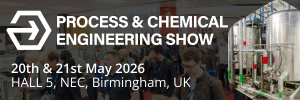Pumping petrochemicals – challenges and rewards
British pump manufacturer and rental company Selwood explains the challenges and rewards of working with petrochemicals.
For seven decades Selwood has supplied pumps and other plant machinery to a range of different industries. Here, Fluid Handling International speaks to Tony Killick, Director of Marketing at Selwood, about the company’s growing experience of working with chemicals and petrochemicals.
“Selwood was formed in 1946 as a plant machinery rental company, just after the Second World War, during the rebuilding of the country,” Killick tells Fluid Handling International. “Today it’s a £60 million turnover business operating in the UK with overseas distribution. We have three business units within the Selwood Group which employs over 500 staff, the first is the pump rental solutions business unit, operating from a network of 21 specialist locations around the UK.
“Then there’s the plant hire business, which consists of eight regional branches throughout the UK and a plant sales operation along the south coast. Finally, there’s the pump sales and manufacturing based in Southampton, which designs, manufactures and sells a range of contractors’ pumps, diesel engine and electrically driven suction pumps for a wide range of applications. We sell to end-users in the UK, and also through a network of independent distributors covering around 38 countries across the world. Our UK rental operation has a pump fleet of over 5,000 units largely made up of Selwood product.”
With vast experience serving the water and wastewater industry, in recent years the company has increasingly been providing solutions to the petrochemical and chemical sector, including working with a major petrochemical refinery in the south of England and a host of facilities in the north-east of the country.
“We’re involved in a range of applications at the moment, and about to start a project over pumping the drainage network at a petrochemical facility in the north-east of England. This will involve pumping a whole range of fluids from around the site to interceptor tanks while drop testing is carried out to ensure there are no splits in the mains,” Killick explains.
Despite the massive difference in the fluids involved, when it comes to over-pumping, Killick says that the process for petrochemicals isn’t that different to wastewater.
“That application is very typical for our pumps, for the water and wastewater industries we over pump pipes, sewers, anything that transports fluids, primarily solids and sewerage. When a pipe breaks we set up a pump at one point and over pump to another point so work can be carried out.
“That work could involve digging out and replacing the pipe, or some kind of no-dig technology to repair or re-line it. Basically, our pumps isolate a section of the fluid transport network, enabling essential repair or maintenance while ensuring continued operations.
“The petrochemical application in the north-east is similar to that. The drainage and pipework systems aren’t broken, but they need to be tested and inspected. While they’re being tested, the pumps are providing the over pumping for that part of the network.”
At the major petrochemical refinery on England’s south coast, all surface water is directed into tanks that Selwood’s pumps empty.
“This is surface water, drainage and run off which could be contaminated. That water gets collected into tanks, and Selwood then pumps it into filtration systems that separate water and contaminates for treatment, safe disposal or re-use.”
A common pump application throughout the petrochemical industry is temporary fire pumps for fire suppressant systems, an application which Selwood pumps are frequently used for.
Selwood High-Head diesel pumps are being supplied to the refinery in the south of England, where they are used on-site as backups. “If the installed fire pumps go down, our rental pumps are ready to provide reliable continuity of essential fire safety systems.”
“We are regularly involved in fire hydrant systems, where we supply High-Head pumps to act as a temporary supply for the fire suppressant system at a facility while it is being inspected, maintained or repaired,” Killick revealed.
Common petrochemical challenges
Petrochemicals can be highly flammable and explosive, and this is a factor which must always be taken into account when fluids are being pumped.
“We have to fit Chalwyn valves and spark arresters to all our equipment.” Killick explains. “Chalwyn valves fit on to the air intake of the engine, shutting it down safely if any gases are present to prevent combustion.
“A spark arrester is a piece of equipment which either replaces or fits on the pump’s exhaust system to stop sparks. We have to fit those to all the pumps that go into petrochemical facilities as standard.”
Secure and certified pump fittings are another crucial consideration, Killick explaining that the demands for petrochemicals are much greater than they are for water or wastewater.
“In water and wastewater applications, we use Bauer lever lock type fittings for the hoses that connect to the pumps for suction and delivery. In petrochemical applications we need flanged fittings: two flanges that are bolted together to ensure safe and secure transfer of fluids.
“The flanged hoses need to be pressure tested, earthed and checked for continuity before going on hire. For petrochemicals there is a far more stringent process, and we have to certify before the equipment can go on-site. The challenge for us is to make sure we have the infrastructure to meet these standards, a challenge that is met by drawing on the experience and expertise from Selwood’s team of pump specialists.”
Corrosion and contamination are other challenges that need to be met when dealing with chemicals and petrochemicals.
“There are certain chemicals that we handle that need different types of components within our pumps and indeed different types of pump material. That’s all part of the solution we provide. You have to understand the fluids that you’re pumping, and provide the appropriate equipment.
“Leading on from that is the contamination issue. All the equipment used in these facilities has to be decontaminated after use. That’s another part of the process required when working in these environments. With water you have to clean components after use, but not decontaminate to the degree required with petrochemicals.”
Stringent health and safety guidelines are a major part of dealing with the petrochemical industry, but Killick says this is not necessarily a problem.
“It makes petrochemicals a challenge, but not in a bad way. Those guidelines are very clear and Selwood teams work with those providing risk assessments and methods statements for all operations.
“Although it’s a challenge, it’s very explicitly laid out and Selwood expertise and procedures support its customer and staff safety.”












